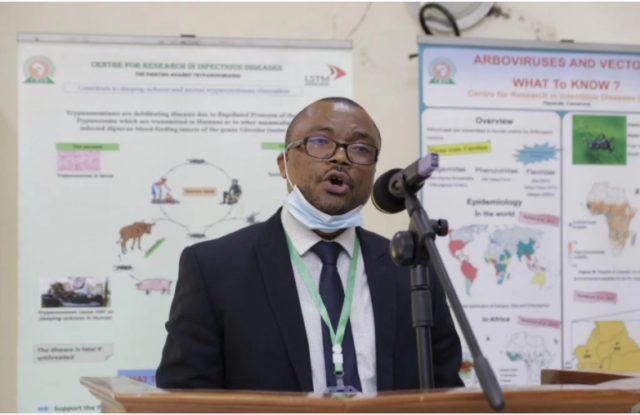 The Technical Vector Advisory Group (TVCAG) met for the second time on November 25th, 2020 in Yaoundé, Cameroon.
The Technical Vector Advisory Group (TVCAG) met for the second time on November 25th, 2020 in Yaoundé, Cameroon.
The plenary meeting brought together expert researchers, stakeholders, research fellows/students and media professionals to assess the progress in the control of vector-borne diseases, share findings and evidences generated by projects launched under PIIVeC including Operational Research Projects conducted by Research Career Development Fellows, formulate recommendations to improve the control of vector-borne diseases and envisage the sustainability of the TVCAG.
This second Annual Meeting was presided over by the representative of the Minister of Public Health who is a Senior Health Administrator Ngu Paul Nembo. Speaking to the press and participants during this meeting, he said just like many developing countries, Cameroon continues to suffer from the heavy burden of vector borne. For this reason, the government is fostering partnerships with research experts and other stakeholders to develop more efficient vector control tools.

Mr. Ngu Paul N, MINSANTE representative
During discussions, the Executive Director of CRID Prof. Charles WONDJI (where the TVCAG project is hosted) reiterated that, stakeholders, local and international partners including the British Government are strongly working in synergy to tackle vector-borne diseases and reduce their burden on the populations and to achieve this, several projects have been and are still being funded.
“We have already funded seven (07) Operational Research Projects (ORP). These projects are carried out by young scientists in Cameroon who will provide evidence to the various national programmes including malaria, Trypanosomiases amongst others to enable evidence-based vector control tools and strategies. Each of these projects is awarded a XAF7.5 million grant”

Prof. Charles WONDJI, Executive Director CRID
The TVCAG meeting is within the framework of the project named Partnership for Increasing the Impact of Vector Control (PIIVeC), hosted at the Centre for Research in Infectious Diseases (CRID). This PIIVeC project is motivated by the 2011-2015 National Strategic Plan for Health Development designed by the Ministry of Public Health to reduce the burden of vector borne diseases by 30%.





